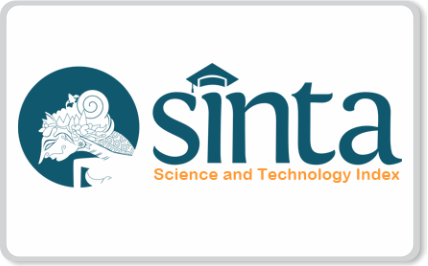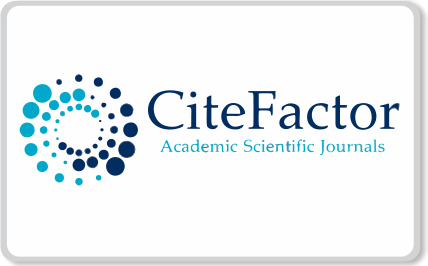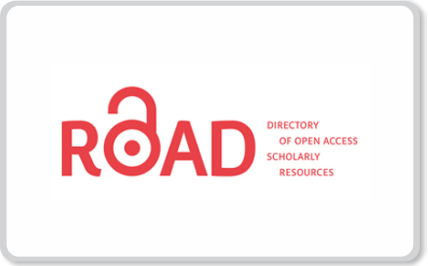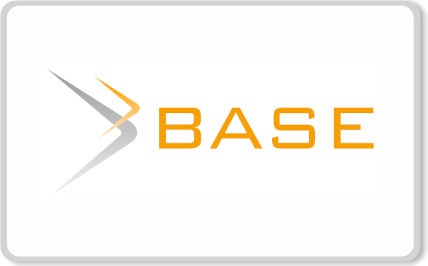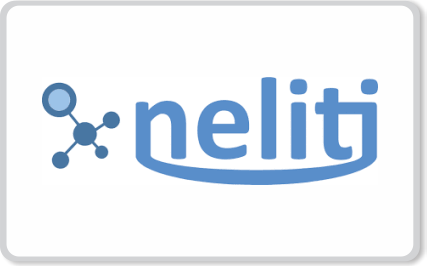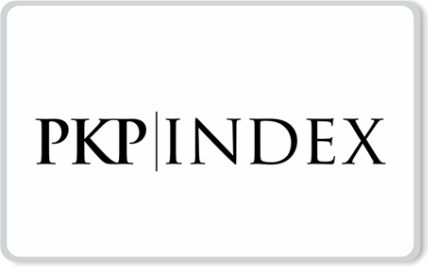Focus and Scope
adalah jurnal peer-review yang menerbitkan artikel tentang praktik, teori, dan penelitian di semua bidang manajemen publik, pelayanan publik, kebijakan publik, dan otonomi daerah. Scope jurnal terdiri dari keperawatan,kesehatan,kesehatan masyarakat. Setiap naskah yang diserahkan akan ditinjau oleh satu peer-reviewer menggunakan metode double blind review.
Section Policies
Articles
Peer Review Process
Artikel yang disubmit ke Jurnal Reformasi akan melalui proses editing dari editor dan dua mitra bestari yang dilakukan secara double blind
Publication Frequency
Reformasi: Jurnal Ilmiah Ilmu Sosial dan Politik published regularly two times a year in: January-Juny July-December Important Dates: Paper submission date: Anytime
Open Access Policy
This journal provides immediate open access to its content on the principle that making research freely available to the public supports a greater global exchange of knowledge.
Penggunaan Referensi Manajer
Setiap artikel yang di submit di Reformasi harus menggunakan style APA
Publication Ethics
Reformasi: Jurnal Ilmiah Ilmu Sosial dan Politik is a peer-reviewed journal. This statement explains the ethical behavior of all parties involved in the publishing action of articles in this journal, including authors, editor-in-chiefs, Editorial Boards, peer reviewers and publishers (Faculty of Social and Politic Sciences). This statement is based on the Best Practices Guidance for COPE Journal Editors. Ethical Guidelines for Journal Publications Publication of articles in the journal Reformasi: Jurnal Ilmiah Ilmu Sosial dan Politik examined by peers is an important building block in the development of a coherent and respected network of knowledge. This is a direct reflection of the work quality of the authors and the institutions that support them. The reviewed articles support and embody scientific methods. It is therefore important to agree on the expected ethical standards of conduct for all parties involved in publishing actions: authors, journal editors, peer reviewers, publishers and the public. Faculty of Social and Politic Sciences as a publisher of Reformasi: Jurnal Ilmiah Ilmu Sosial dan Politik carries out its trust duties for all stages of publication very seriously and we recognize ethical and other responsibilities. We are committed to ensuring that advertising, reprints, or other commercial revenue have no impact or effect on editorial decisions. In addition, the Faculty of Social and Politic Sciences of the University Tribhuwana Tunggadewi and the Editorial Board will assist in communication with other journals and / or publishers where this is useful and necessary. Publication Decision Editor Reformasi: Jurnal Ilmiah Ilmu Sosial dan Politik is responsible for deciding which articles are submitted to the journal to be published. The validation of the work in question and its importance to researchers and readers should always encourage such decisions. Editors can be guided by the policy of the editorial board of the journal and are limited by the legal requirements as currently applicable with respect to defamation, copyright infringement and plagiarism. Editors can negotiate with editors or other reviewers in making this decision. The game is fair The editor at any time evaluates the manuscripts for their intellectual content irrespective of race, sex, sexual orientation, religious belief, ethnic origin, nationality, or political philosophy of the author. Confidentiality The editor and any editorial staff should not disclose any information about the manuscript submitted to anyone other than the relevant author, observer, potential observer, other editorial advisor, and publisher, as appropriate. Disclosure and conflict of interest Unpublished material disclosed in submitted manuscripts may not be used in the research editors themselves without the written consent of the author. Viewer's Tasks Contributions to Editorial Decisions Peer reviews help editors in making editorial decisions and through editorial communication with authors can also assist authors in improving papers. Speed Any elected referee who feels ineligible to review research reported in the script or knows that a quick review may not have to notify the editor and excuse himself from the review process. Confidentiality Manuscripts received for review should be treated as confidential documents. They may not be indicated or discussed with others except as authorized by the editors. Standards of Objectivity The review should be done objectively. The personal criticism of the author is not correct. Referees should express their views clearly with supporting arguments. Source Recognition Reviewers shall identify relevant published works that have not been quoted by the author. Any statement that observation, derivation, or argument has been previously reported should be accompanied by relevant citations. The reviewer should also seek the editor's attention if there are substantial or overlapping similarities between the text under consideration and other published papers that have personal knowledge. Disclosure and Conflict of Interest Special information or ideas obtained through peer review should be kept confidential and not used for personal gain. Reviewers may not consider manuscripts in which they have a conflict of interest resulting from competition, collaboration, or other relationships or relationships with any of the authors, companies, or agencies linked to the paper. Author's Duties Standard reporting The author of the original research report must present an accurate report on the work performed as well as an objective discussion of its significance. The underlying data should be accurately represented in the paper. A paper should contain sufficient details and references to enable others to replicate the work. Fraudulent or intentionally inaccurate statements are unethical and unacceptable behavior. Data Access and Retention Authors are required to provide raw data in connection with papers for editorial reviews, and must be prepared to provide public access to the data (consistently), where possible, and should be in any event. be prepared to keep the data for a reasonable time after publication. Originality and Plagiarism The authors shall ensure that they have written works which are completely original, and if the author has used the work and / or the words of others that have been quoted or quoted appropriately. Duplicate, Redundant, or Simultaneous Publication A writer should not generally publish a script that explains essentially the same research in more than one major journal or publication. Sending the same script to more than one journal simultaneously is unethical and unacceptable publishing behavior. Source Recognition Appropriate recognition of the work of others must always be given. The author should cite publications that have been influential in determining the nature of the work reported. Paper Stamps Authors should be limited to those who have made a significant contribution to the conception, design, implementation, or interpretation of reported research. Anyone who has made a significant contribution should be registered as a coauthor. Where there are others who have participated in certain substantive aspects of a research project, they must be recognized or registered as contributors. The appropriate author must ensure that all appropriate co-authors and no coauthor are incorporated on paper, and that all co-authors have reviewed and approved the final version of this paper and have approved the submission for publication. Disclosure and Conflict of Interest All authors should disclose in their text any financial conflicts or other substantive conflicts that may be interpreted to influence the outcome or interpretation of their manuscript. All sources of financial support for the project should be disclosed. Fundamental mistake in published work When a writer finds significant errors or inaccuracies in his published work, it is the duty of the writer to immediately notify the journal or publisher editors and work with the editor to retract or correct the paper. Plagiarism Policy Plagiarism Policy Plagiarism Includes But Unlimited to: Referring and / or quoting terms, words and / or sentences, data and / or information from a source without citing sources in the citation notes and / or without adequately mentioning the source; Referring and / or citing random terms, words and / or sentences, data and / or information from sources without quoting sources in citation notes and / or without adequately mentioning sources; Using the source of ideas, opinions, views, or theories without adequately declaring the source; Formulate the words and / or sentences themselves from the source of words and / or phrases, ideas, opinions, views, or theories without adequately declaring the source; Submit a scientific paper produced and / or published by others as a source of scientific work without adequately disclosing it. Prevention Reformasi: Jurnal Ilmiah Ilmu Sosial dan Politik will ensure that any published article will not exceed 20% equality score. Plagiarism screening will be done by Reformasi: Jurnal Ilmiah Ilmu Sosial dan Politik using Plagiarism Checker X Sanctions Warning; Warning letter; Revocation of articles; Revocation of publication.
GUIDELINES FOR SUBMISSON
GUIDELINES FOR SUBMISSON ONLINE
The author must first register as a Writer here. The author must meet the form as detailed as possible where the form marked with an asterisk must be entered. After all the form text boxes are filled in, the Author clicks the "Register" button to proceed with registration. Therefore, the Author is brought to the online author submission interface where Authors should click "New Submissions". In the Start New Submissions section, click "Click Here: to go to step one of the five-step filing process". Here are five steps in the online shipping process:
Step 1 - Initiate Submission: Authors should check the shipping checklist and agree with the copyright notice of Care: Scientific Journal of Health Sciences with a check mark on the copyright notice checklist. Then, click "Save and Continue"
Step 2 - Upload Submission: To upload a manuscript to this journal, click "Browse" on the Upload submission file item and select the script document (.doc / .docx) file to submit, then click the "Upload" button until the file has been uploaded. Do not upload cover letter and other complementary files here. Then, click "Save and Continue"
Step 3 - Inserting the Submission Metadata: In this step, the author's metadata detail must be included including the corresponding author marked. After that, the title of the script and the abstract must be uploaded by copying the text and pasting it in the text box including the keywords. Then, click "Save and Continue"
Step 4 - Upload an Additional File: If you have a complementary file, click the "Browse" button, select the file, and then click the "Upload" button. This step is optional, if you do not have a supplemetary file, just click "Save and Continue".
Step 5 - Confirm Delivery: The author should check the uploaded manuscript document in this step. To submit a script to Care: Scientific Journal of Health Sciences, click the "Complete Delivery" button after the correct document.
After this submission, the Author submitting the script will get a confirmation email about the submission. Therefore, Authors can track their delivery status anytime by logging into the online delivery interface. Tracking submissions include script review status and editorial process.
If you experience any difficulties please contact us via [email protected] or contact to 085933104083
VISITOR STATISTIC
Realtime Visitor Overview
Weekly Visits Overview
Monthly Visits Overview
Weekly Visitor Location
Monthly Visitor Location


